Reason is, and ought only to be the slave of the passions, and can never pretend to any other office than to serve and obey them.
DAVID HUMELiberty of any kind is never lost all at once
More David Hume Quotes
-





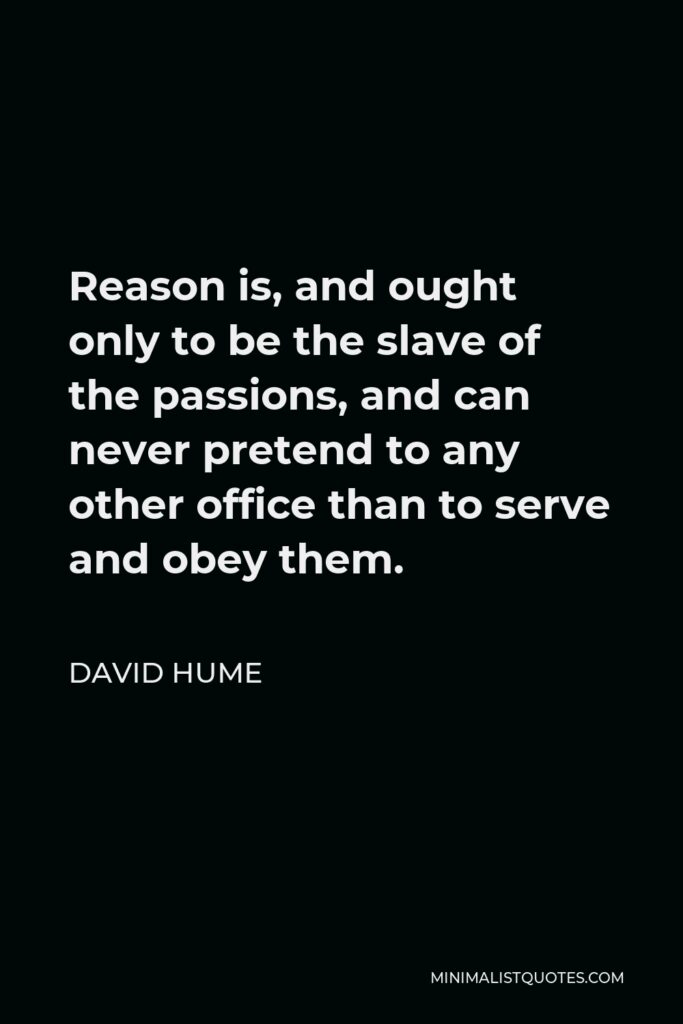

-





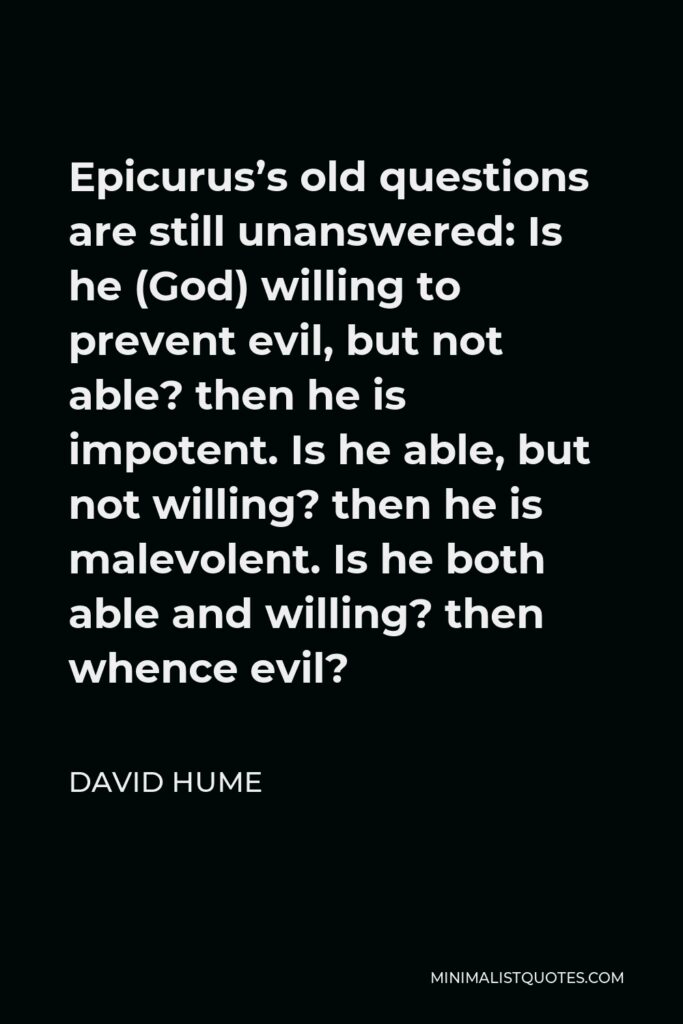

Epicurus’s old questions are still unanswered: Is he (God) willing to prevent evil, but not able? then he is impotent. Is he able, but not willing? then he is malevolent. Is he both able and willing? then whence evil?
DAVID HUME -





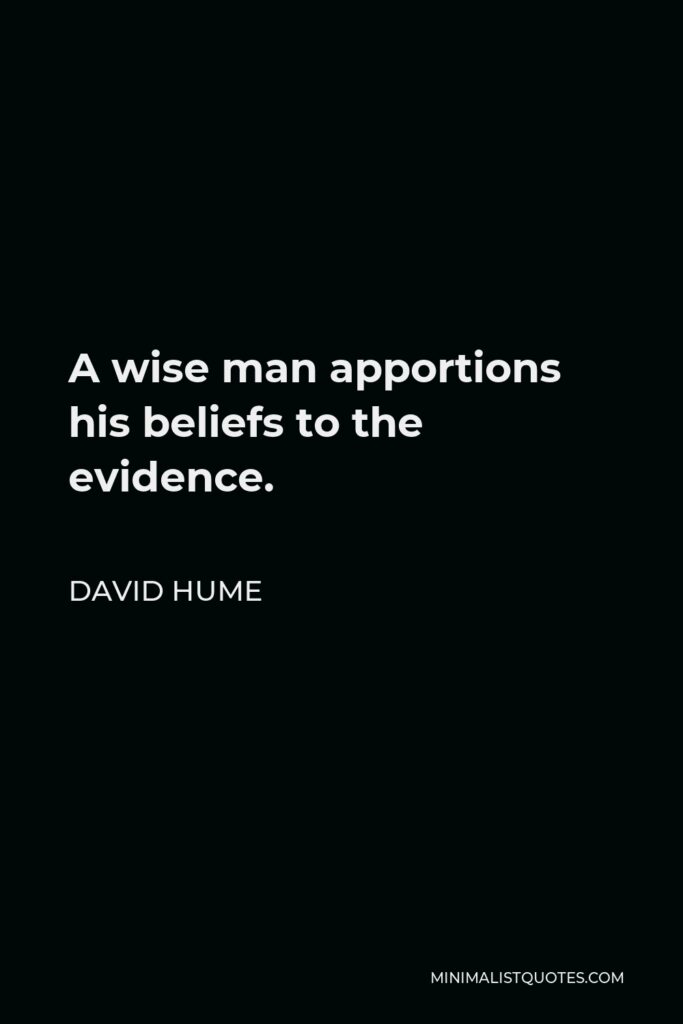

A wise man apportions his beliefs to the evidence.
DAVID HUME -







Liberty of any kind is never lost all at once
DAVID HUME -







There is nothing to be learnt from a Professor, which is not to be met with in Books.
DAVID HUME -





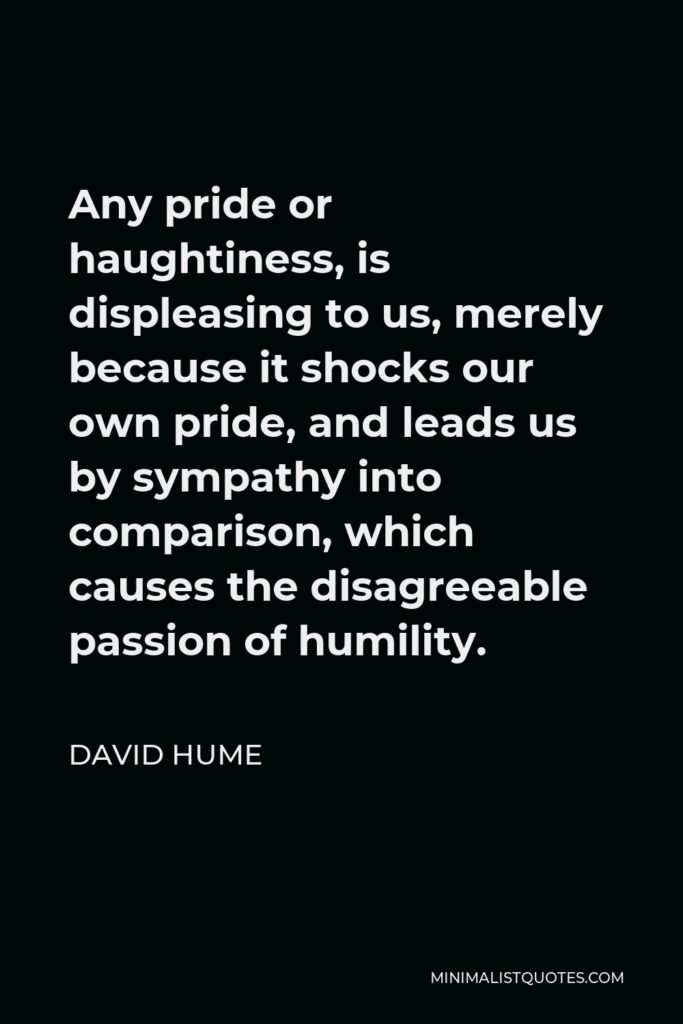

Any pride or haughtiness, is displeasing to us, merely because it shocks our own pride, and leads us by sympathy into comparison, which causes the disagreeable passion of humility.
DAVID HUME -







Beauty in things exists in the mind which contemplates them
DAVID HUME -







Beauty is no quality in things themselves: It exists merely in the mind which contemplates them; and each mind perceives a different beauty.
DAVID HUME -







It is difficult for a man to speak long of himself without vanity.
DAVID HUME -







A purpose, an intention, a design, strikes everywhere even the careless, the most stupid thinker.
DAVID HUME -







All knowledge degenerates into probability.
DAVID HUME -





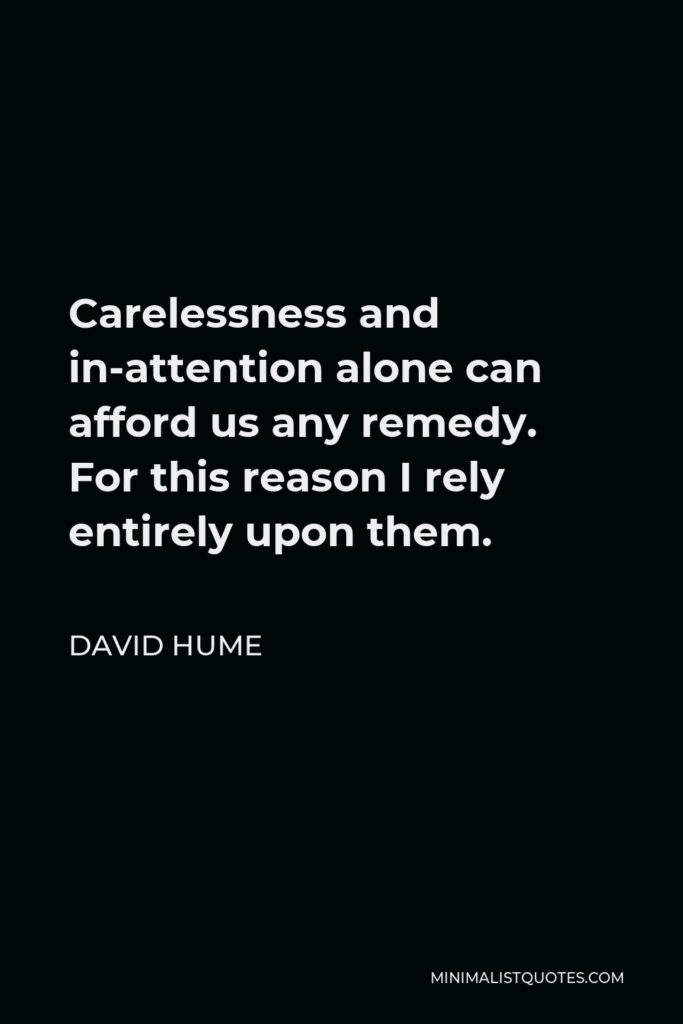

Carelessness and in-attention alone can afford us any remedy. For this reason I rely entirely upon them.
DAVID HUME -







The victory is not gained by the men at arms, who manage the pike and the sword; but by the trumpeters, drummers, and musicians of the army.
DAVID HUME -







When suicide is out of fashion we conclude that none but madmen destroy themselves.
DAVID HUME -







In public affairs men are often better pleased that the truth, though known to everybody, should be wrapped up under a decent cover than if it were exposed in open daylight to the eyes of all the world.
DAVID HUME -







To be a philosophical Sceptic is the first and most essential step towards being a sound, believing Christian.
DAVID HUME








